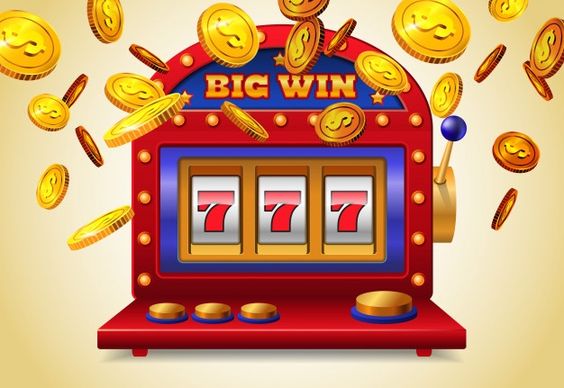
How to Play Roulette: A Comprehensive Guide
admin
- 0
Roulette, one of the most iconic and thrilling casino games, has captivated players for centuries with its blend of chance and strategy. This guide will delve into the intricate world of roulette, covering everything from the basic rules and types of bets to strategies and etiquette. Whether you’re a novice or a seasoned player, this comprehensive blog post will enhance your understanding and enjoyment of the game.
Introduction to Roulette
Roulette, which means “little wheel” in French, traces its origins back to 18th-century France. The modern roulette wheel was developed by Blaise Pascal, a French mathematician, physicist, and inventor, while he was attempting to create a perpetual motion machine. Today, roulette is a staple in casinos worldwide, both in physical establishments and online platforms.
Basic Rules of Roulette
Roulette is a game of chance played on a wheel divided into numbered pockets, ranging from 0 to 36 in European roulette and an additional 00 in American roulette. The goal is to predict where a ball spun around the wheel will land.
The Roulette Wheel
- European Roulette: Contains 37 pockets (numbers 1-36 and a single 0).
- American Roulette: Contains 38 pockets (numbers 1-36, a single 0, and a double 00).
The Roulette Table
The table is divided into two main sections: inside bets and outside bets. Each type of bet covers different combinations of numbers with varying odds and payouts.
Placing Bets
Players place their chips on the betting layout, choosing from a variety of betting options. Once all bets are placed, the dealer spins the wheel in one direction and the ball in the opposite direction. When the ball settles into a pocket, winning bets are determined, and payouts are made accordingly.
Types of Bets in Roulette
Inside Bets
Inside bets are placed on specific numbers or small groups of numbers. They offer higher payouts but lower odds of winning.
- Straight-Up Bet: Betting on a single number. Pays 35 to 1.
- Split Bet: Betting on two adjacent numbers by placing a chip on the line between them. Pays 17 to 1.
- Street Bet: Betting on three numbers in a horizontal line. Pays 11 to 1.
- Corner Bet: Betting on four numbers that form a square. Pays 8 to 1.
- Six Line Bet: Betting on six numbers in two adjacent rows. Pays 5 to 1.
Outside Bets
Outside bets cover larger groups of numbers and offer lower payouts but higher odds of winning.
- Red or Black: Betting on whether the ball will land on a red or black number. Pays 1 to 1.
- Odd or Even: Betting on whether the winning number will be odd or even. Pays 1 to 1.
- High or Low: Betting on whether the winning number will be high (19-36) or low (1-18). Pays 1 to 1.
- Dozens: Betting on one of three groups of 12 numbers (1-12, 13-24, 25-36). Pays 2 to 1.
- Columns: Betting on one of the three vertical columns of 12 numbers. Pays 2 to 1.

Strategies for Playing Roulette
While roulette is primarily a game of chance, there are various strategies that players employ to manage their bets and potentially increase their chances of winning.
The Martingale Strategy
The Martingale is one of the most well-known betting systems. It involves doubling your bet after every loss, with the idea that a win will eventually recoup all previous losses and yield a profit equal to the original bet.
Pros:
- Simple to understand and implement.
- Can recover losses with a single win.
Cons:
- Requires a large bankroll to sustain.
- High risk of reaching table limits or exhausting funds.
The Reverse Martingale Strategy
Also known as the Paroli system, this strategy involves doubling your bet after every win, aiming to capitalize on winning streaks while minimizing losses.
Pros:
- Maximizes potential profits during winning streaks.
- Less risk of significant losses compared to Martingale.
Cons:
- Relies on continued winning streaks, which are rare.
- Losing streaks can quickly deplete funds.
The D’Alembert Strategy
The D’Alembert system is a more conservative approach where players increase their bet by one unit after a loss and decrease it by one unit after a win.
Pros:
- Lower risk compared to Martingale.
- Easier to manage bankroll.
Cons:
- Slower recovery of losses.
- Prolonged losing streaks can still be detrimental.
The Fibonacci Strategy
Based on the Fibonacci sequence, this strategy involves betting according to the sequence (1, 1, 2, 3, 5, 8, etc.), moving one step forward after a loss and two steps back after a win.
Pros:
- Structured approach with clear progression.
- Less aggressive than Martingale.
Cons:
- Can be complex to follow.
- Extended losing streaks can lead to substantial losses.
The James Bond Strategy
This strategy, popularized by the fictional character James Bond, involves placing bets to cover a wide range of numbers. Typically, it involves betting 70% of your stake on high numbers (19-36), 25% on the middle range (13-18), and 5% on 0.
Pros:
- Covers a broad spectrum of outcomes.
- Balanced risk and reward.
Cons:
- Requires a significant initial stake.
- Not foolproof; losses can still occur.
Roulette Etiquette
When playing roulette in a physical casino, adhering to proper etiquette ensures a pleasant experience for all players and staff.
Handling Chips
- Place your chips carefully within the designated betting areas.
- Avoid touching or moving other players’ chips.
- Allow the dealer to manage payouts and chip placement.
Respecting the Dealer
- Wait for the dealer to signal the end of betting before placing or adjusting bets.
- Do not argue with the dealer or other players about outcomes.
- Tip the dealer as a gesture of appreciation, especially after significant wins.
Interacting with Other Players
- Be courteous and respectful to fellow players.
- Avoid distracting or interfering with others’ betting decisions.
- Celebrate wins modestly and accept losses gracefully.
Online Roulette
With the rise of online casinos, players can now enjoy roulette from the comfort of their homes. Online roulette offers several advantages, including convenience, a wide variety of game options, and the ability to play at any time.
Choosing an Online Casino
When selecting an online casino to play roulette, consider the following factors:
- Reputation and Licensing: Ensure the casino is reputable and licensed by a recognized authority.
- Game Variety: Look for a platform that offers different versions of roulette, including European, American, and French.
- Bonuses and Promotions: Take advantage of welcome bonuses, free spins, and other promotions.
- Payment Methods: Verify that the casino supports secure and convenient payment options.
- Customer Support: Check for reliable customer support available through multiple channels.
Playing Online
Online roulette follows the same basic rules as physical roulette, with the added convenience of digital interfaces and features.
- Virtual and Live Dealer Games: Choose between virtual roulette, where the outcome is determined by a random number generator, and live dealer roulette, which offers a more immersive experience with real dealers.
- Betting Limits: Be mindful of the betting limits, which can vary significantly between online casinos.
- Practice Modes: Many online casinos offer practice modes or free play options, allowing you to familiarize yourself with the game before wagering real money.
Advanced Roulette Tips
For those looking to take their roulette game to the next level, here are some advanced tips to consider.
Bankroll Management
Effective bankroll management is crucial for long-term success in roulette. Set a budget for each session and stick to it, avoiding the temptation to chase losses.
- Set Win and Loss Limits: Determine your win and loss limits before starting, and be disciplined in adhering to them.
- Divide Your Bankroll: Allocate your bankroll into smaller units, limiting the amount you bet in a single session.
- Avoid Emotional Betting: Stay calm and composed, avoiding emotional decisions that can lead to impulsive betting.
Understanding the House Edge
The house edge in roulette varies depending on the version of the game. European roulette has a lower house edge (2.7%) compared to American roulette (5.26%) due to the additional 00 pocket. Always choose European roulette when possible to improve your odds.
Observing Patterns and Biases
While roulette is a game of chance, some players believe in observing patterns and biases to inform their betting decisions. While these methods are not foolproof, they can add an extra layer of excitement to the game.
- Hot and Cold Numbers: Some players track hot numbers (frequently occurring) and cold numbers (rarely occurring) to guide their bets.
- Wheel Biases: In physical casinos, some players look for biased wheels, where certain numbers or sections appear more frequently due to imperfections.
Common Myths About Roulette
Roulette is surrounded by numerous myths and misconceptions. Let’s debunk some of the most common ones.
Myth 1: The Martingale System Guarantees Profits
While the Martingale system can recover losses in theory, it requires a large bankroll and has a high risk of hitting table limits or exhausting funds. It does not guarantee profits.
Myth 2: Past Results Influence Future Outcomes
Each spin of the roulette wheel is independent, and past results do not influence future outcomes. The idea of a “due” number is a fallacy.
Myth 3: Betting Systems Can Overcome the House Edge
No betting system can overcome the inherent house edge in roulette. While strategies can manage risk and betting patterns, they cannot change the game’s fundamental odds.
Conclusion
Roulette is a captivating and timeless casino game that offers a blend of excitement, strategy, and chance. By understanding the basic rules, types of bets, strategies, and etiquette, you can enhance your roulette experience and make informed decisions. Whether you prefer the ambiance of a physical casino or the convenience of online play, roulette promises endless entertainment and potential rewards.
FAQs
Q1: What is the best roulette strategy?
A: There is no definitive “best” strategy, as roulette is a game of chance. However, strategies like the Martingale, Reverse Martingale, and Fibonacci can help manage bets and bankrolls.
Q2: Can I play roulette for free online?
A: Yes, many online casinos offer free play or practice modes for roulette, allowing you to play without wagering real money.
Q3: What is the difference between European and American roulette?
A: The primary difference is the number of pockets on the wheel. European roulette has 37 pockets (1-36 and a single 0), while American roulette has 38 pockets (1-36, a single 0, and a double 00).
Q4: Is there a way to predict where the ball will land?
A: No, roulette outcomes are random, and it is impossible to predict with certainty where the ball will land on any given spin.
Q5: What is the house edge in roulette?
A: The house edge varies by version. European roulette has a house edge of 2.7%, while American roulette has a house edge of 5.26% due to the additional 00 pocket.
Slotomania Slot Machines first appeared in the virtual world in 2010. Sa88 It rapidly gained popularity due to its innovative gameplay and engaging features. Players were drawn to the vibrant graphics and immersive sound effects that created a truly exciting gaming experience.

